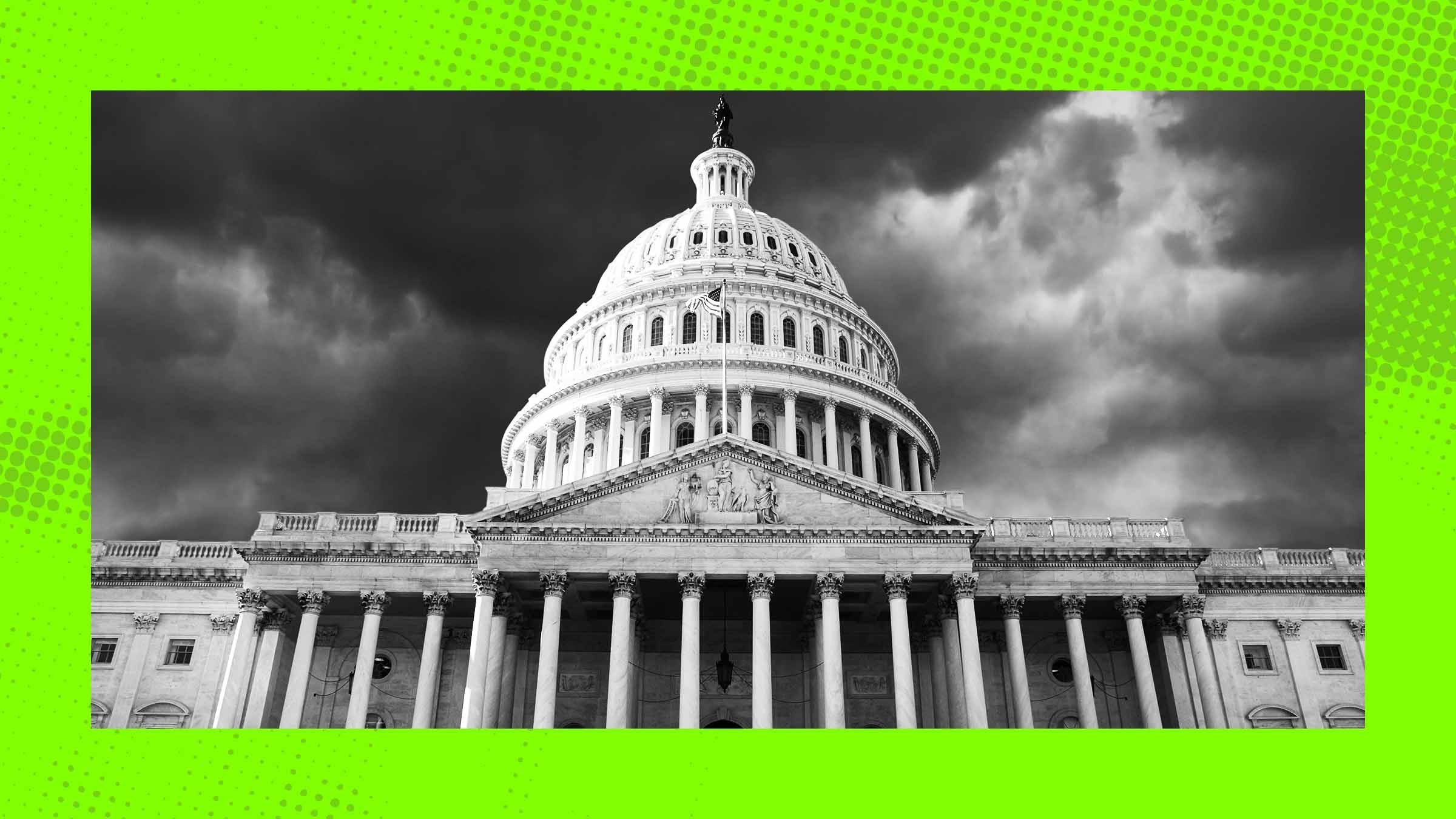Where Every Democratic Lawmaker Stands on Supreme Court Reform
This page tracks which members of the House and Senate support specific proposals for reforming the Supreme Court in the current session of Congress.

Judiciary Act of 2023 (S. 1616, H.R. 3422)
This bill would add four justices to the Supreme Court.
Read more on Balls & Strikes
- Why Supreme Court Expansion Is Winning Over More Skeptics, Jenny Hunter
- The Simplest Fix to the Brett Kavanaugh Problem? Expand the Supreme Court, Elie Mystal
Who supports it?
Supreme Court Tenure Establishment and Retirement Modernization Act of 2023 (H.R.5566)
This bill would would allow presidents to appoint a Supreme Court justice in the first and third years of their terms, and impose mandatory retirement from active service after 18 years on the bench. It does not preserve retired justices’ ability to decide original jurisdiction cases, and does apply to sitting justices.
Read more on Balls & Strikes
- Here’s How Supreme Court Term Limit Bills Would Actually Work, Madiba Dennie
- Supreme Court Term Limits Are Not Going to Cut It, Jay Willis
Who supports it?
Supreme Court Term Limits and Regular Appointments Act of 2023 (H.R. 4423)
This bill would allow presidents to appoint a Supreme Court justice in the first and third years of their terms, and impose mandatory retirement from active service after 18 years on the bench. It would not apply to sitting justices.
Who supports it?
Supreme Court Biennial Appointments and Term Limits Act (S.3096)
This bill would would allow presidents to appoint a Supreme Court justice in the first and third years of their terms. It would functionally impose 18-year term limits by limiting appellate jurisdiction cases to the nine most recently appointed justices, except that all justices would continue to participate in cases in which the Court has original jurisdiction. It would apply to sitting justices.
Who supports it?
Supreme Court Ethics Act (S.325, H.R.927)
This bill would require the Judicial Conference of the United States to adopt a binding code of ethics for Supreme Court justices, and would require justices to explain their recusal decisions. It would also create the position of Ethics Investigations Counsel, whose office would investigate any justice’s potentially unethical conduct and issue annual reports.
Read more on Balls & Strikes
- Supreme Court Ethics Rules Are an Embarrassing Joke, Adam Cohen
- The Supreme Court Is Going Out of Its Way to Remain Unaccountable, James LaRock
- The Supreme Court’s Power Made Clarence Thomas’s Corruption Inevitable, Steve Kennedy
- The Supreme Court Is Incapable of Policing Itself, Jay Willis
Who supports it?
Supreme Court Ethics, Recusal, and Transparency Act of 2023 (S.359, H.R.926)
This bill would require Supreme Court justices to adopt and comply with a binding code of ethics. Oversight would come in the form of review by appeals court judges. It would also impose more stringent recusal obligations for Supreme Court justices, require parties and amici before the Court and involved in the confirmation process to disclose sources of funding; and subject justices to the same gift and travel disclosures as members of Congress.
Who supports it?
Supreme Court Code of Conduct Act (S.1290)
This bill would require Supreme Court justices to adopt and comply with a binding code of ethics. Oversight would come in the form of an individual designated by the justices to process complaints of alleged violations. The bill does not impose recusal obligations or include the other transparency measures of S.359/HR.926.
Who supports it?
Judicial Ethics and Anti-Corruption Act of 2023 (H.R.3973)
This bill would apply the existing Code of Conduct for U.S. Judges to the Supreme Court. It would also require justices to issue written recusal decisions whenever litigants request recusal; allow the public to file complaints against Supreme Court justices (just as the public can file complaints against lower court judges); and strengthen restrictions on gifts and travel.
Who supports it?
Justice Is BLIND Act of 2023 (H.R. 3534)
This bill would prohibit justices and their families from holding certain financial interests that may impose conflicts of interests with cases they are deciding, unless the justices or their family members place such assets in a blind trust.
Who supports it?
Restoring Judicial Separation of Powers Act (H.R.642)
This bill restructures the federal court system by placing limits on the Supreme Court’s jurisdiction. It would create a 13-judge panel of federal appeals court judges to hear cases in which the United States or a federal agency is a party, and cases related to constitutional interpretation, statutory interpretation, or executive orders. It would also reform the shadow docket by transferring motions for injunctive relief restraining enforcement of a law, regulation, or order to the U.S. Court of Appeals for the D.C. Circuit.
Read more on Balls & Strikes
- The Supreme Court’s Shadow Docket Problem Is Getting Worse In a Hurry, Yvette Borja
- The Brutal Efficiency of the Supreme Court’s Shadow Docket, Elie Mystal
Who supports it?
Every Supreme Court Nominee Deserves Timely Consideration Act (S.859)
This bill would allow for a minority of senators to vote to discharge a Supreme Court nominee from the Judiciary Committee after 60 days of inaction, and to send their nomination to the Senate floor for debate and an up-or-down vote.
Who supports it?
Cameras In the Courtroom Act (H.R. 3222)
This bill would require the Supreme Court to permit television coverage of oral argument and all other open sessions of Court, unless a majority of the justices decide that TV coverage would violate the due process rights of one or more of the parties.
Who supports it?